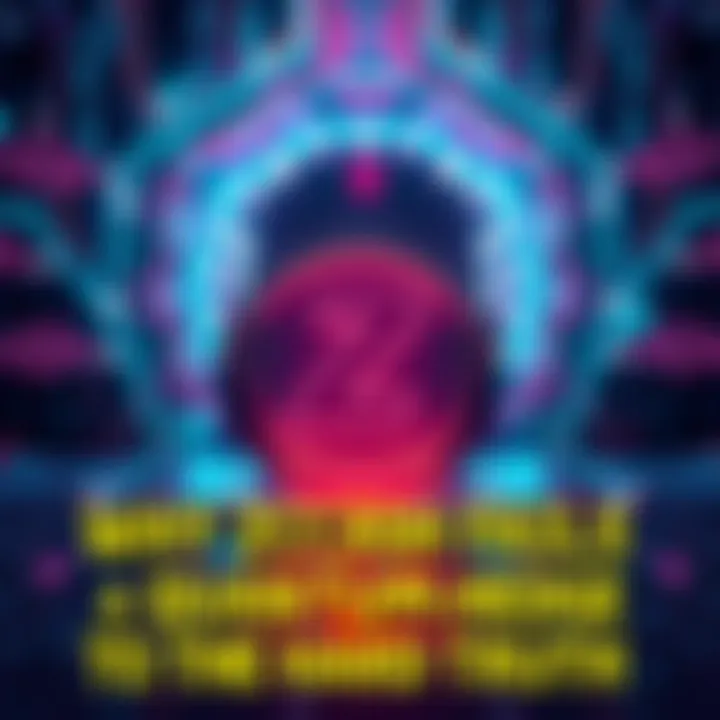Zcash Lacks Quantum Resistance | Insights from the Crypto Community
Edited By
Olivia Murphy

A recent examination highlights critical shortcomings of Zcash in the realm of quantum resistance, with experts suggesting it may not be the smart choice for investors seeking a hedge against future quantum threats. Community sentiments lean heavily towards skepticism about Zcash's viability in a post-quantum world.
Key Issues Identified
Zcash's reliance on elliptic-curve cryptography (ECC) raises alarms. This technology is vulnerable to Shor’s algorithm, which can theoretically crack it with a sufficiently powerful quantum computer.
Current Concerns in the Crypto Space
Some have pointed out that the current zero-knowledge proofs—vital for Zcash’s privacy features—are also not quantum-resistant. Without implementing post-quantum cryptographic schemes, Zcash may not secure users' transactions long-term.
"BTC will be upgraded well before quantum laptops become a thing," warned one participant.
Moreover, Zcash developers have so far not adopted any protocol-level quantum-resistant cryptography.
Community Insights on Quantum Defenses
The conversation on forums reveals a mix of frustration and caution:
Awareness of Vulnerability: Many users emphasize the importance of researching digital assets that claim to be quantum-resistant.
Scrutiny of New Links: Concerns have been raised about malicious domains appearing in discussions, with users urging caution.
Skepticism of Hype: Some believe the buzz around quantum resistance might simply be a marketing ploy, not backed by substantial technical advancements.
A Temporary Fix?
Interestingly, Zcash is focusing on a "quantum recoverability" mechanism, yet many see this as a temporary solution rather than a robust defense against quantum threats. As one comment aptly put it, "Buying a privacy coin for quantum resistance is like buying a boat to drive on the highway."
Risks Ahead
With emergency protocol changes being unpredictable, the community fears the potential for chaos should a quantum crisis unfold. The viability of ZEC as a secure asset against quantum threats remains questionable, leaving many investors to rethink their strategies.
Key Points to Consider
⚠️ Zcash's ECC structure is vulnerable to quantum attacks.
🔍 Current zk-SNARKs do not provide quantum resistance.
⚡ Migration and upgrade risks could lead to market panic under quantum duress.
🗨️ "Most people enjoy being told what to believe instead of doing the groundwork themselves," is a cautionary take referencing personal research responsibility in crypto investments.
As the debate rages on within the community, it’s clear that while Zcash offers privacy, its quantum resistance is far from guaranteed. Investors would do well to consider other options if they are serious about securing their assets against future digital threats.
Anticipating the Quantum Trade-Offs
There’s a strong chance that, as mainstream awareness of quantum threats grows, investors will start shifting their focus from Zcash to more secure alternatives. Experts estimate around 60% of crypto enthusiasts may reconsider their holdings within the next year, prompted by ongoing discussions on forums about quantum vulnerabilities. Should Zcash fail to implement post-quantum solutions, the asset could face a serious downturn, possibly losing 30-40% of its market value. As the technology evolves, competitive projects prioritizing quantum resistance are likely to emerge, reshaping the landscape and leaving Zcash trailing behind unless significant upgrades take shape in the near future.
Echoes of the Dot-com Era
The current situation surrounding Zcash's struggle against quantum threats bears a striking resemblance to the dot-com bubble of the late '90s. Back then, companies promising transformative internet solutions captured investors' imaginations, yet many lacked fundamental capabilities. Similarly, while Zcash offers enticing privacy features, it might not stand the test of advancing technologies claiming quantum safety. Just as the internet phase saw companies pivoting quickly to adapt or fade away, Zcash may face a pivotal moment in its strategy as threats evolve. Understanding this parallel can remind investors that even established platforms can quickly fall behind if they fail to innovate.
